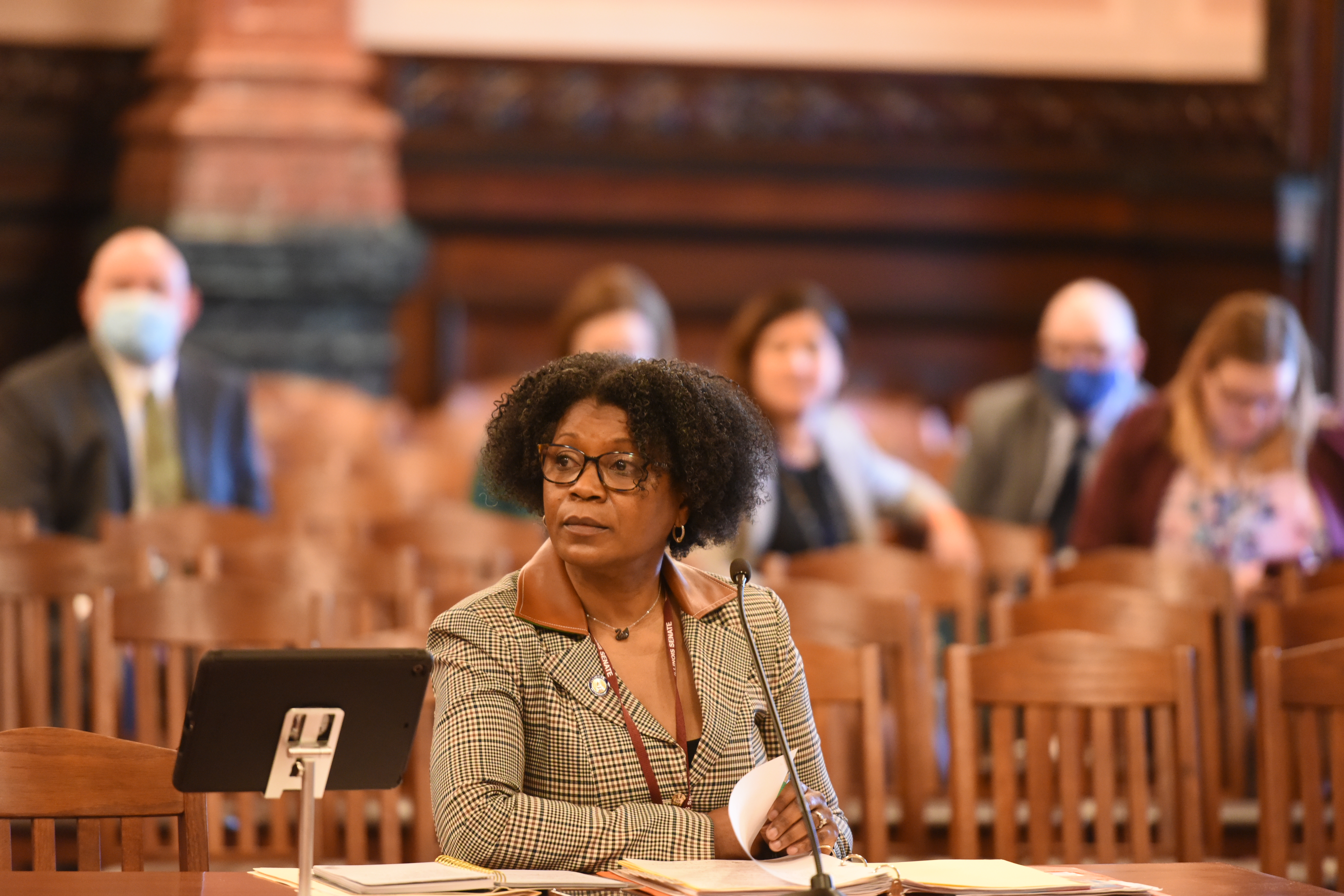
“Although Illinois has taken proactive steps to protect women’s reproductive rights, millions of women could be in danger should Roe v. Wade be overturned, and this regressive move would set our country back by more than five decades.
“Reproductive care is essential for women’s health, especially in underserved areas. I commit to continuing the fight against this injustice and supporting women through these intense times.”

“Ensuring safety and security for all of Illinois’ residents is undoubtedly the highest obligation of government,” said Johnson. “This legislation looks to lean on not only law enforcement for the best approach, but seeks community and expert input as well.”
House Bill 4736 would create the Crime Reduction Task Force comprised of a bipartisan group including legislators, law enforcement, and legal and criminal justice professionals, as well as crime victims and witnesses. The task force would develop a plan of action to reduce crime across the state and report its findings to the General Assembly and the governor.
Additionally, the legislation would create a statewide anonymous tip hotline, a Violent Crime Witness Protection fund and Co-Responder Pilot Program for the police departments of East St. Louis, Peoria, Springfield and Waukegan.
“True public safety can be achieved if we properly collaborate with law enforcement and the community,” Johnson said. “We want to encourage individuals who witness crimes to feel safe when filing reports, but we must be sure to not put anyone’s safety in jeopardy.”
House Bill 4736 passed with bipartisan support and awaits the governor’s signature for final approval.
SPRINGFIELD – State Senator Adriane Johnson (D-Buffalo Grove) moved legislation out of the Senate Education Committee to prohibit public high schools from 
“Students are so much more than a set of credits,” said State Senator Adriane Johnson. “They are scholars and future contributors to our society, and we should do all we can to further their academic careers and not contribute to unnecessary burdens.”
Current law does not address withholding of grades, transcripts of diplomas for students for financial reasons whatsoever. The law only speaks to academic performance, established local goals and objectives, age, and other social reasons.
Under House Bill 4243, the prohibition would last for 3 years and would require school districts to catalogue and report the total amount of unpaid accounts due to the prohibition of withholding grades, transcripts, or diplomas to the Illinois State Board of Education.
“This is an equity issue and this practice almost exclusively affects low-income students,” said Johnson. “Plus, there is no real evidence that withholding a student’s transcript encourages parents to pay the bill.”
House Bill 4243 passed the Senate Education Committee and will be heard before the full Senate for further consideration.

“Small businesses have continuously bounced back despite the issues in supply or other pandemic related burdens,” Johnson said. “Grant programs like Back to Business have been vital to keeping the doors open of thousands of small businesses across the state, and especially those in Lake County. I am proud to have supported this initiative in bringing additional resources to the area as our economy continues to recover.”
The B2B grants are awarded by the Illinois Department of Commerce and Economic Opportunity using funds allocated to them by the American Rescue Plan through last year’s state budget.
So far – thanks to strong support from Senator Johnsoon – DCEO has provided $200 million in B2B grants to small businesses throughout the state with an emphasis on disproportionately impacted areas. With nearly $50 million left to go, more businesses will have the opportunity to get a share of the relief funds.
Grants will continue to be awarded on a rolling basis. Visit the DCEO website for more information on the B2B program or check the status of an existing application by logging into the portal.
Page 40 of 71